Obviously, I’ve become hooked on embedding YouTube clips in our browser. Dunno why, and I think it’s arguable that it’s more than a little insulting to put video in a comics podcast blog but…eh. I’m sure it’s a phase I’ll grow out of.
Anyway, welcome from the far-flung past! This is being posted from the road as the missus and I find ourselves on the rocky shoals of uncertainty (not the most beguiling name, but it’s hard to beat the hotel rates) for a few days. (And yes, that means no recording this week so no podcast next week but Graeme and I promise to make it up to you. We really, really do.)
So, let’s jump in with those show notes, shall we? Please note that: (a) this was recorded the evening *before* DC broke the Internet with its list of new titles and new creative teams so…if you’re hoping to hear our reactions to that news, you’re kind of out of luck?, and (b) if you want to have a player-free link to this episode, and you don’t like iTunes, or our RSS feed, or Stitcher, then go to the first comment and copy and paste it. I realized Graeme did a kind of neat thing with the first ep. of Baxter Building where he just linked to the dang episode. Was that a thing you guys liked? Should I start doing that? Please let us know until we muster the time, resources, and wherewithal to handle The WordPress Podcasting Template Nobody Likes.
That said, tally-ho, hey?
00:00-22:27: Greetings from Plague Central! Graeme has a very congested update about Portland being “Lurgy Town.” We hope you like listening to discussions about illness, hypochondria, Graeme’s health care, and Jeff’s very apparent worry that he is the latter. Believe it or not, this very long non-comics discussion pays off later. Comics talk more or less enters the equation with a discussion of “Little Annie Fanny” around the 16:28 mark.
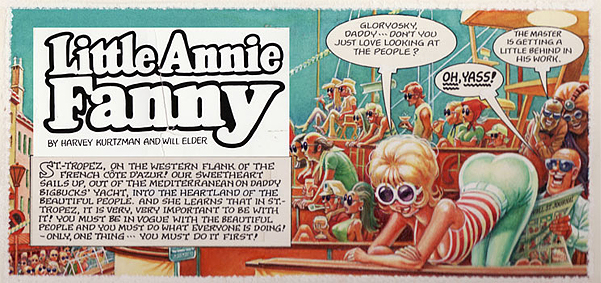
To be fair to Kurtzman & Elder, there were a few stunning pages I passed up due to size consideration…
22:27-25:41: As Graeme puts it, “To sum up: I’m sick; Jeff’s going on a trip next week.” So consider yourself officially warned that next week will be a skip week, and that although Graeme qualifies for the “Hefner,” Jeff will be lucky if he can get covered under the “Guccione.” Which is finally, somehow, the proper transition to discuss…
25:41-29:18: COMICS! First up: Locke & Key! Graeme’s read it, Jeff hasn’t, so of course guess who monopolizes the conversation about it? (Hint: it’s not Graeme.)
29:18-42:26: And then, that silliness, out of the way, we both get to talk about Nameless #1 by Grant Morrison, Chris Burnham and Nathan Fairbairn, and also how we think Morrison is in full-on personal renaissance mode what with his work also on Multiversity and Annihilator.
Jeff references a post by Marc Singer that most definitely does not agree. But although we dive into that more later, this section is very much our appreciation for this very strong first issue that is strangely joyful, and far less forced than Morrison’s earlier similar-in-some-ways, dissimilar-in-many-other-ways Happy. Jeff also thinks if you liked Nameless #1, you should check out the excellent words-without-pictures book Love Is the Law by Nick Mamatas.
42:26-1:09:10: As mentioned above, The Multiversity Guidebook! by Grant Morrison, and a slew of artists including great stuff by Marcus To (Chibi and Atomic Batman!) and Paulo Siqueira (Earth Kirby!). We talk about their great work briefly, but we also have ideas about the Empty Hand and what it means, both in-story and most especially thematically? We try to dig in deep about what we think it all means and how we think it’s all going to end.
1:09:10-1:26:49: You’d think there’d be a modern-rock band called Ridiculous, wouldn’t you? So that DJs on boring radio stations could go, “And now, moving from Ridiculous to Sublime…”? Like, wouldn’t you get at least some kind of sustained royalties out of that considering the fact that radio stations still play Sublime songs for some insane reason? Anyway, we went from talking about The Multiversity Guidebook to Superman #38 by Geoff Johns and John Romita, Jr. so maybe you can figure out where my head was at to start thinking about things ridiculous and sublime.
NOTE: Full spoilers for Superman #38, in case you’re worried about that kind of thing.
HISTORICAL NOTE: this podcast wrapped a mere hour before Geoff Johns announced he was leaving Superman with issue #39, which I think would’ve greatly changed the tenor of our conversation (well, it certainly would’ve changed Jeff’s point of view) but, eh, what can you do? Also, I’m sure you’ve seen the list of all the new teams and titles coming from DC. THAT got announced a mere twelve hours after we recorded. So yeah, we’re pretty much a charming historical document already…albeit one that discusses Superman’s new power, Jimmy Olsen’s new role, and much more. I only wish we could’ve talked about how exciting the possibility of Gene Yang writing Superman is. Discussed instead: the “superhero vs. his clothes” trope; Scott Lobdell stories; Futures End vs. Earth 2: World’s End vs. Batman Eternal vs. the DC All Access page about Batman Eternal; and more.
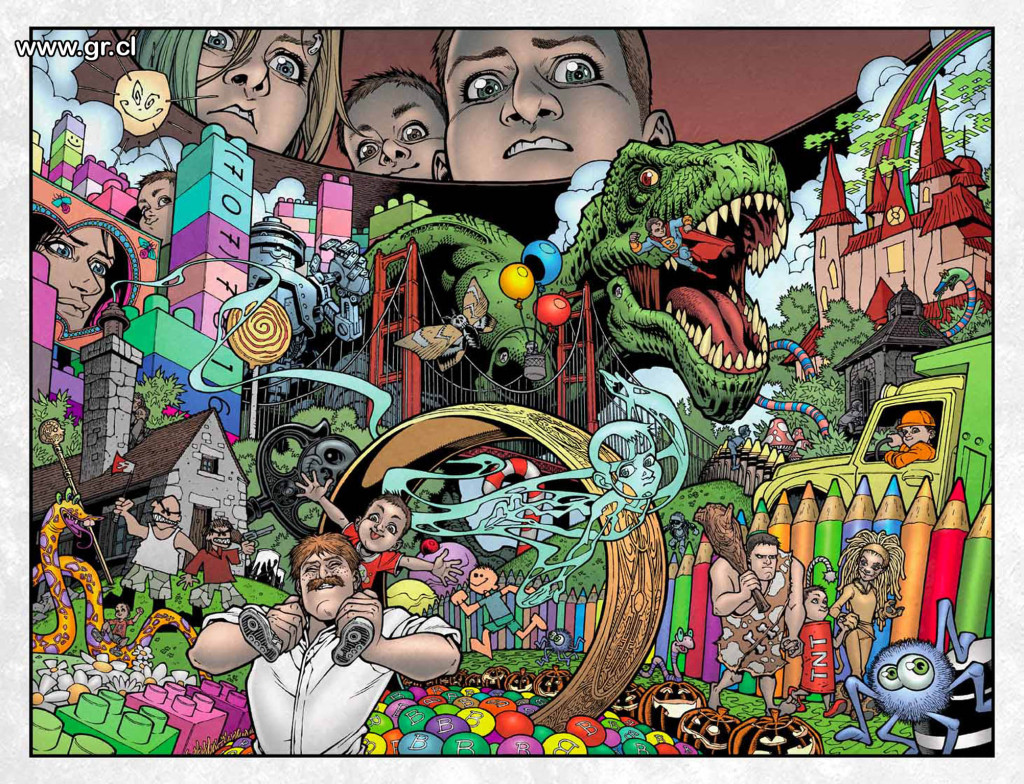
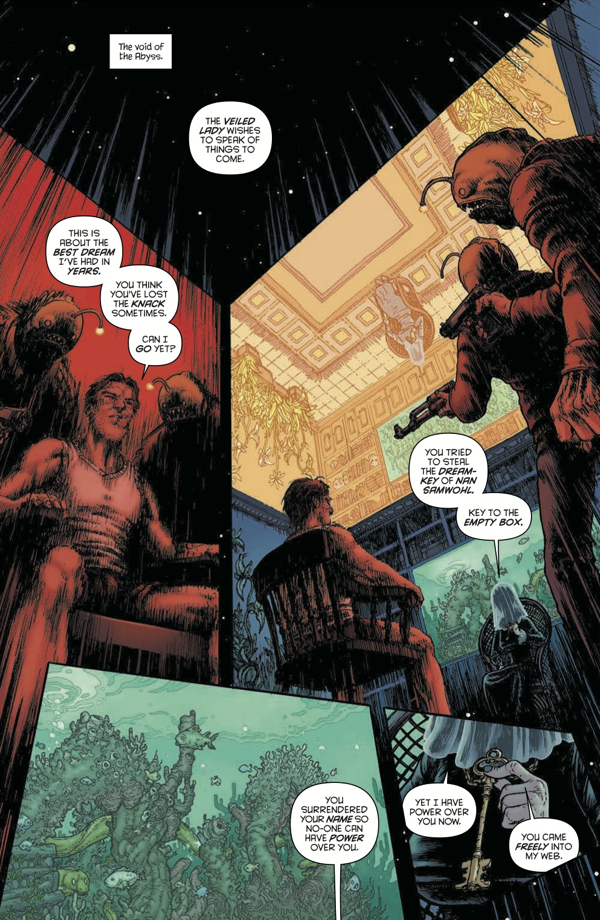
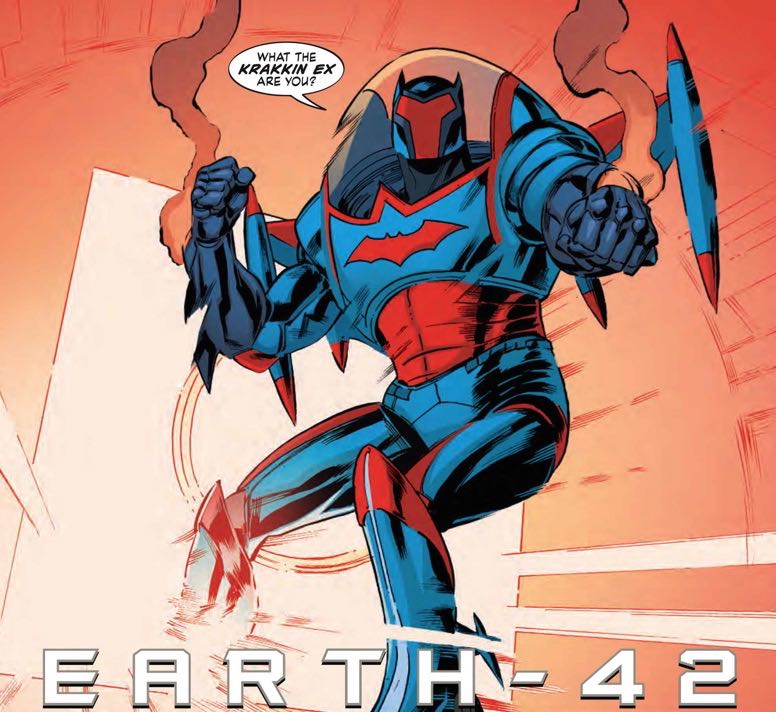
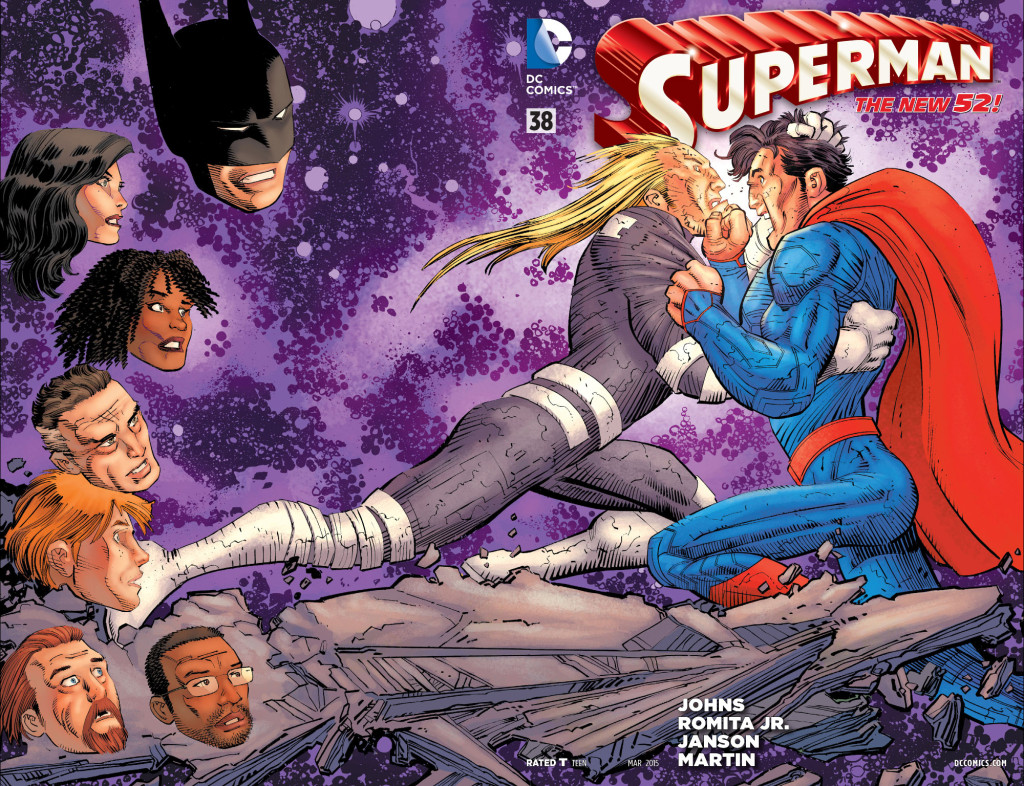
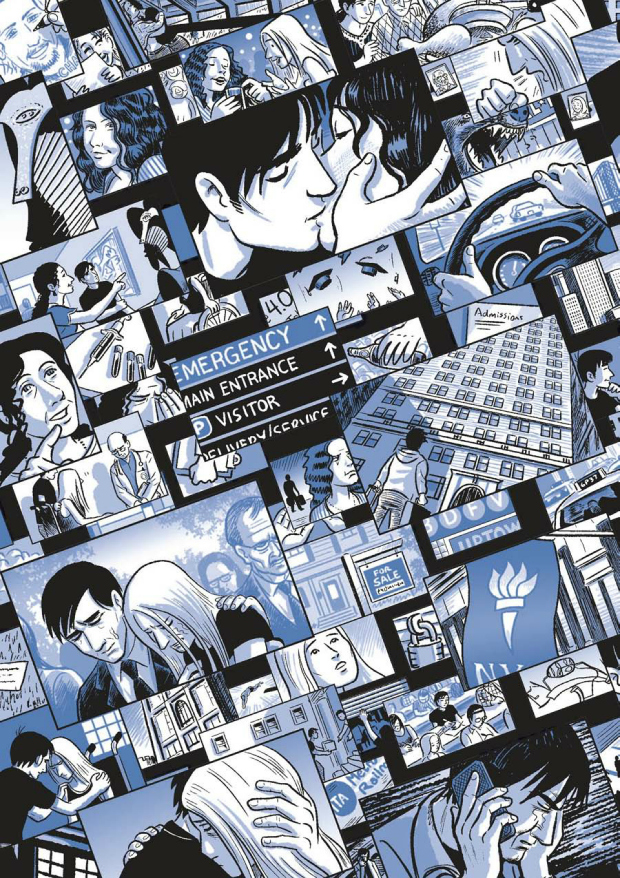


And, like I said, here’s a link for you to manually copy, paste, spindle, fold, and mutilate as you please:
http://theworkingdraft.com/media/podcasts/WaitWhat169.mp3
Well you’re off to a good start posting a Smiths song. Still Ill is interesting because it’s a great riff with great lyrics, but I don’t think they really figured out how to start the song. I kind of like the little industrial sound they open this version with, but it doesn’t quite fit the rest of the song. That said, at least it’s not the the TERRIBLE harmonica opening from Hatful of Hollow. Because you know, that’s what you think of when you think of the Smiths… harmonicas.
Jeff’s dislike of the cover for the Nameless got me wondering. What does everyone on here think of thematic covers like the one on Nameless?
I really like evocative, conceptual covers like that. Sometimes I’d rather be misled by a cover than have the opposite happen, like when you see a cover and think, that’s pretty crazy and cool, and then discover on page 14 that that crazy covered is actually lifted from the content within. I feel retroactively spoiled and incredulous, it’s weird.
On the other hand, I guess the literal approach to the cover harkens back to having the cover function as a page in itself, complete with word and thought balloons. Although, in the silver age, covers were often intentionally misleading, to the point where stories inside bear little or no resemblance to what’s going on on the front.
I strongly prefer evocative, conceptual, and streamlined covers. A minimal design can “say” a hell of a lot more than a cluttered one. Especially something as simple but bright and iconic as, say, the Chip Zdarsky Sex Criminals covers.
Design-heavy covers are great for standing out from the crowd of other comics, but lousy for standing out from the previous issue of the same comic.
“Oh, it’s an issue of Manhattan Projects.”
“Or is it a reprinting of a previous issue?”
Good point. I’m thinking about how all 5 Rian Hughes covers for the “Stark Disassembled” Matt Fraction Iron Man story used the same basic design, with slight differences in the drawings in the center. Even if they looked similar to each other, they stood out from other books, and if you bought one issue off the racks you’d definitely recognize the next one in a month’s time. At least, one would hope..
Good point. I’m thinking about how all 5 Rian Hughes covers for the “Stark Disassembled” Matt Fraction Iron Man story used the same basic design, with slight differences in the drawings in the center. Even if they looked similar to each other, they stood out from other books, and if you bought one issue off the racks you’d definitely recognize the next one in a month’s time. At least, one would hope..
Design-heavy covers are great for standing out from the crowd of other comics, but lousy for standing out from the previous issue of the same comic.
“Oh, it’s an issue of Manhattan Projects.”
“Or is it a reprinting of a previous issue?”
See, indistinguishable!
Not at all a double-click on the “post comment” button.
I am worried that you guys’ hypothesis about Morrison’s corporate-owned work, that he feels an obligation to handle these characters to preserve their integrity, is correct. After reading Supergods, I have plenty of reason to believe that Morrison actually sees Superman and Batman as religious figures, if not Gods then messiah figures similar to Jesus, Moses, Mohammed, and Buddah. I am not only concerned about the mental health of one who goes through life praying to the idols of fictional characters created by impoverished teenagers and maintained by heartless corporations, but it makes me less enthusiastic about his work and that tarnishes him in my eyes as a creative idol.
A lot of Morrison’s most vocal critics (re: fanboys) complain about his ego and how he talks like he’s a rock star and bigger than the fans or the continuity. After reading Supergods, I found myself wishing that Morrison was the kind of “bigger than Jesus” John Lennon figure that traditionalist comics fandom represents him as, because that guy feels that his comics are unique and important as creative works. As opposed to seeing himself as a servant of these gods made CMYK, who believes that it would be a genuine loss to society to have writers who don’t “get” the truth of the characters controlling them, and speaks of those abstract ideas as more important than the creators who actually do those stories (see: his completely insensitive assessment of Siegel and Shuster, both in terms of their rights and their importance ot the character). In a way, it’s as detrimental to the work as the fannish obsession with continuity of writers like Roy Thomas, because it doesn’t really allow the characters to be used as characters. Morrison at least remains a talented enough writer to still entertain as he works on Superman and Batman, but not inspire.
Personally, this is a bit disappointing, though I am glad for this renaissance of Morrison moving away from superheroes (or at least towards more unusual depictions in Multiversity). Since a lot of the interest in Morrison comes from his role as a counter-culture figure, in creations like the Invisibles and the Filth or less sanitized superhero comics like his Doom Patrol and New X-Men, or in just plain great original series like We3, I hope he sticks to this, instead of trying to justify an inherently limited “good vs. evil” marketing narrative as touching into some greater connection with the divine.
Unless I’m reading too much into this?
I appreciated Jeff’s point about The Sculptor’s inauthentic depiction of the NYC art scene. I think this is a point about most literary graphic novels (or those that aspire to be so) that I don’t often see people make. Almost any prose novelist worthy of being published gets all the details right for even minor, throwaway scenes. That attention to detail is vital to immersing the reader in the reality they’re trying to write for them. A skilled novelist writing a book like The Sculptor, would research the hell out of the art world to give his story as much realistic texture as possible. This kind of authenticity is something I feel most graphic novelists fall short on, therefore making most literary comics fall short of most literary novels.
The biggest inauthenticity might be in David’s work itself which is representational and obvious in a way that the contemporary art world abhors. It’s very much a cartoonist’s vision of “good art”. This is a case where a visual medium gets locked into having to show what would be better off left to the reader’s imagination in a novel.
All that said, I really enjoyed the book and felt that McCloud nailed the authenticity with the character of Meg. I thought she was one of the most interesting and nuanced characters I’ve read in a graphic novel in a while.
Keep up the great work guys! I always thoroughly enjoy every episode.
I found your discussion of THE SCULPTOR to be fairly fascinating, especially considering I have not yet read the book in question. To hold my interest under those circumstances means you guys were working overtime.
What I connected with was the way in which Jeff’s position was similar to the way several writers criticized Whiplash for not “getting jazz right.” Which it might not. In fact, I’ll venture it probably gets it quite wrong. So if you come to the movie looking for a “jazz story” you’ll end up disappointed. Similarly Jeff seems to want an “art story” and SCULPTOR does not deliver on this score.
On the other hand, viewers who saw Whiplash as a movie about twisted mentors, obsession, etc tend to regard it very highly, similar to how Graeme seemed to like SCULPTOR more because he did not have an investment in the accuracy of the art world depiction,
Neither reading is “wrong,” per se, but it does mean that, had Graeme not been sick, it is the kind of parallel track debate that will almost never resolves itself. There’s no convincing, really, because those readings are just too solidly separate from one another.
Just listening to this now, and hoooo man, i am so on jeff’s side in the need for authenticity in your work. It doesnt need to be explicit, this is comics, put it in the background! If all sculpting was was this book’s representative ‘Macguffin’ of hard work, and McCloud doesnt care one way or the other about it, then maybe the MacGuffin should be something he did give a shit about. Having a vapid element of your story that needs to be overlooked to get to the ‘core’ of its meaning is just bad writing.
I would rather see a masturbatory story about an artist trying to make it in the comics world, than some aspect that’s shown no attention or love. You dont get the mass market appeal from the New York art scene for that though…
Graeme argued his side much better though